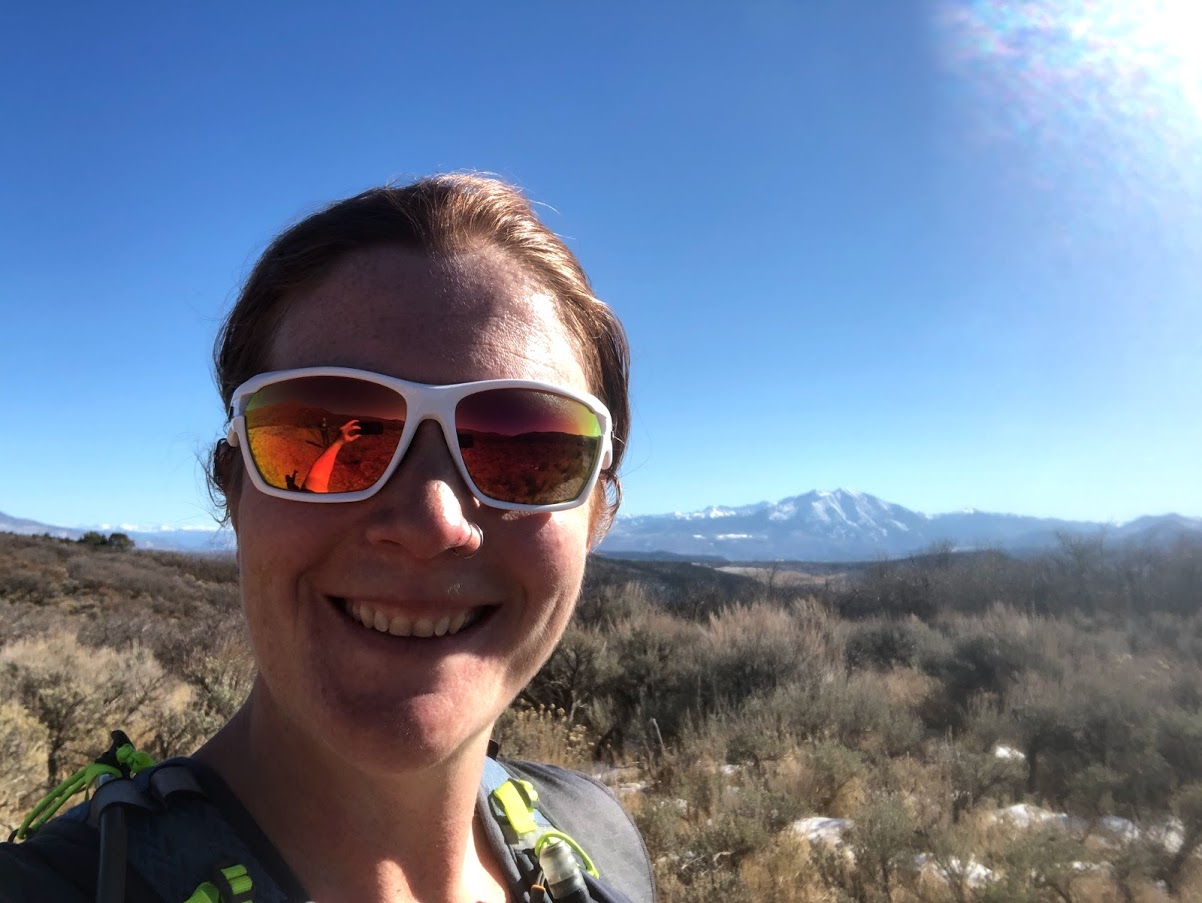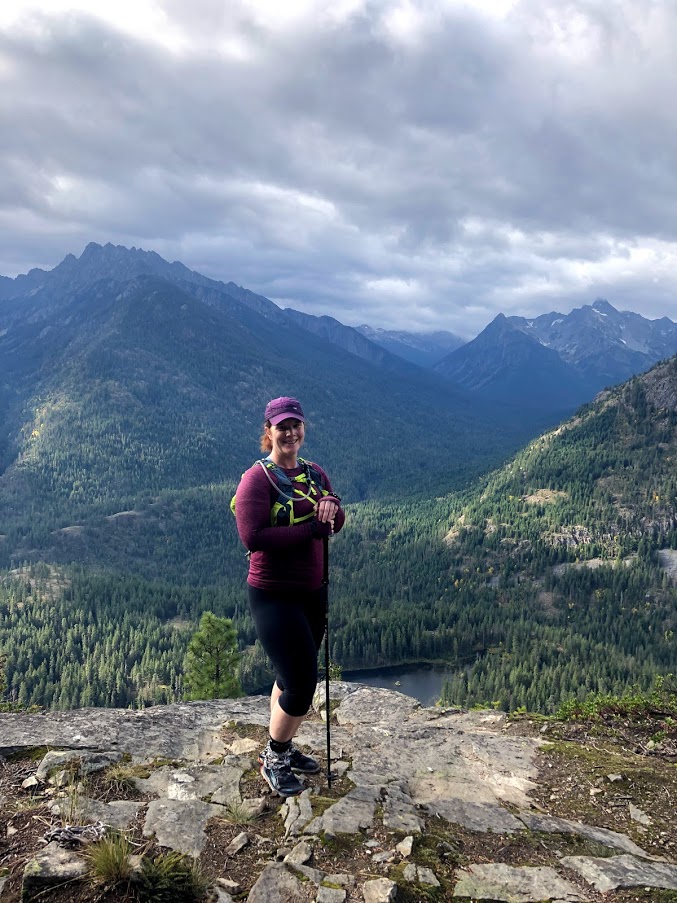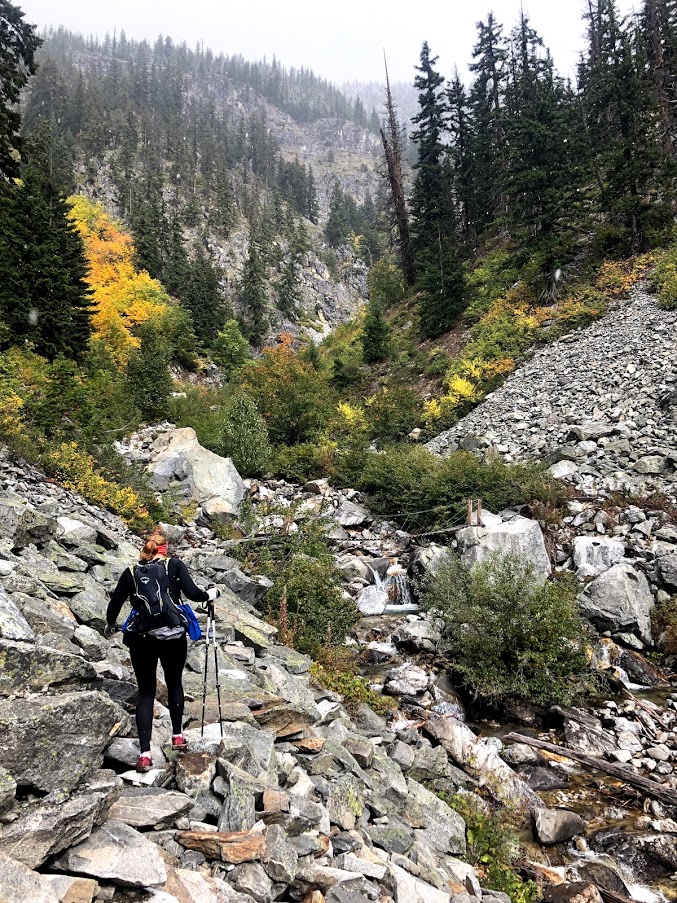1st Annual Women’s Adventure Scholarship Winner: Anna Brown
With growing anticipation and excitement for our Second Annual Women’s Adventure Scholarship for the 2021 season, we wanted to highlight the incredible women who were chosen from our first scholarship round. With over 250 women sharing their insights, experiences and motivations as runners, it was deeply humbling and inspiring to read the applications for women all across the globe who have found a great sense of meaning and connection to lacing up their runners and hitting the trails!
One of three Women’s Adventure Scholarship winners was awarded to Anna Brown from Spokane, Washington. Anna joined us for four big mountain days exploring the trails leading to the magical backcountry village of Stehekin.

For Anna, what started as a negative self-image to bring her to running, blossomed into something so much more.
“I love to run because it continually allows me to rediscover who I am. I used to joke, “I will only run if something ugly is chasing me.” After the birth of my daughter in 2007, that something “ugly” was my own self-image. I started running almost as a way to punish myself for not living up to the perfect societal ideal of a woman. However, somewhere along the way, running allowed me to accept myself for who I am, and I no longer use running as a countermeasure for habits that were more harmful than good. Running allows me to be me, and it allows me to discover who I am as I age and change. I have run marathons, trail runs, half iron-mans, 5Ks, 10ks, and more. I have felt amazing after a run, and I have cried and crawled my way to the finish line. I don’t finish first, I often finish last, but I finish. And that is more than enough – just like me. I run because running has taught me so much about living”
With women facing many fears, challenges and obstacles to get out and explore wild places, Anna touches on the fear of the unknown.
“I think one thing that contributes to women fearing wilderness spaces is the unknown. Many of us are raised to be apprehensive of what we don’t know, and we are taught to protect ourselves from what we can’t control. In spaces continually inhabited by others, we have social norms we can follow to guide our way through situations. If we were not exposed to the wilderness, especially the backcountry, I think many women are unsure of how to navigate it. It’s peculiar if you think about it. In many ways, the rules of nature are more general and simpler than the ones we follow in social situations with other human beings, yet many women are uncomfortable with wild spaces. Exposure to the backcountry, to those pristine and alone places, is key in changing our stories and in empowering us to take back what I truly believe is natural and needed – our connection to the earth in a very real and intimate way. To be present and alone in nature is not the same as being with others in the wilds of society. Crowded city spaces often create isolation, but the vast space of the wilds can heal and bond us all together. This is true for me. I think it can be true for others.”
Throughout Anna’s life she has continued to inspire others with the power of consistency and a persistent passion to get out on the trails and show up!
This may sound trite, but honestly, I am most proud that I am still running. As I have gotten older, my body has been more prone to injury. I have found myself continually challenged by not only injury, but demands from life in general – family, work, and so on. I have had to give myself the grace and space to put running on hold for days, weeks, and even a month or two. I am not very competitive with others when it comes to running, but with myself, I am relentless. I used to be so irritated that I couldn’t break my personal records, but I have come to learn that it is ok. It is ok to allow my body and my mind to take care of me. Running supports me in these endeavors; I used to think my body and mind needed to support my running, but that is not really true. Running is therapy – physical and mental. And when I am 80+, I hope that my greatest running accomplishment will yet be that I am still running.

With Anna’s inspiration, insight and experience we share her final essay submission from our Adventure Scholarship.
Whether it is through social conditioning that is deeply rooted in the norms of our culture or whether it is perpetuated by the generational rituals of our families of origin, we learn from a young age our “place” in society. It’s a way for our collective brains to categorize individuals as part of our tribe and to “other” those who are not; evolutionarily speaking, this is how societies survived famines, wars, religious persecution, etc. My earliest memories of being “othered,” was in kindergarten. My family lived on the edge of the wealthiest school district in the city. We were working class. In addition, my mother was a large woman and did not look like the other moms. My fellow 6-year-olds would laugh at our old, ugly, yet reliable car, my gently used clothing, my made-with-love sack lunches, and my beautifully fat mother. It broke my young heart. I would experience this “othering” continually as a child, young adult, and even now – snide remarks on my weight, on my lack of wealth, on my family name, and on being a woman. This is part of the human condition; the price we pay for living in societal groups, but I believe women experience some of the harshest forms of criticism; as such, we fade away, break, or develop unbending backbones. Personally, I am the latter; I learned how to be tough, independent, and resilient.
I once had a yoga teacher say to me that the goal of yoga was not to be perfect but to breathe ourselves through the stuck spaces around our lives so that we could reveal our tender hearts hidden under layers of protective armor and to finally make peace with who we are. For me, an overheated studio with 50 strangers is not the place for me to find this type of vulnerable self-discovery; I would rather embark on this endeavor in the wilds of the pacific northwest. Here is the thing about being tough, it serves a much-needed purpose in the moment of surviving, but it does little for building true strength and creating the vital connection we all need to live with meaning. In my experience, the most empowering thing I have done as a woman is to be vulnerable, to lay my heart bare for others, and to reach for the light of human connection. I could not have learned how to do this with others, if the mountain trail hadn’t first taught me how to do it with myself.
There is a raw honesty that one finds among the dusty July mountain paths of Eastern Washington – a truth that is realized once you force yourself to breathe in deeply the smell of hot pine needles. There is a feeling of connectedness and belonging that one can only get from standing alone on an alpine mountain top in October while looking at the newly turned colors of the larch blazing like wildfire below. Getting to these places requires something more than physical strength and sheer will. It requires the ability to find those supposed human weaknesses that many women have buried deeply – vulnerability, reliance on others, and ultimately, self-love. I have experienced the depth and breadth of human emotion on the mountain trail; I once screamed until my throat was sore because of sheer panic at basecamp in the Pasayten Wilderness; I have cried the heaving sobs of grief on the hard packed earth of an ultra-race course on the high-desert outside of Ellensburg; I have shared in the side-splitting laughter that comes after sheer exhaustion with other women under the shadow of the Sawtooth range; and, I have stood in stunning awe looking down at the mist shrouded valleys on a mountaintop in the North Cascades. For me, the most empowering experience I have had and continue to have in nature is giving in to my need to be connected to this earth and others; I have to breathe into those spaces of vulnerability, and in doing so, I am learning to live a life of meaning and not just survival.


